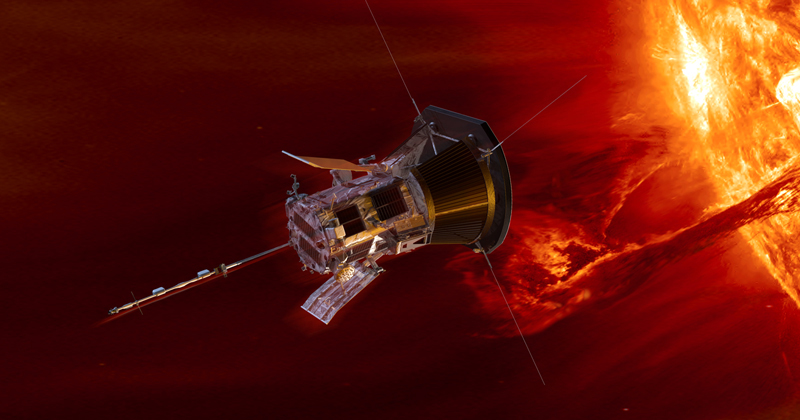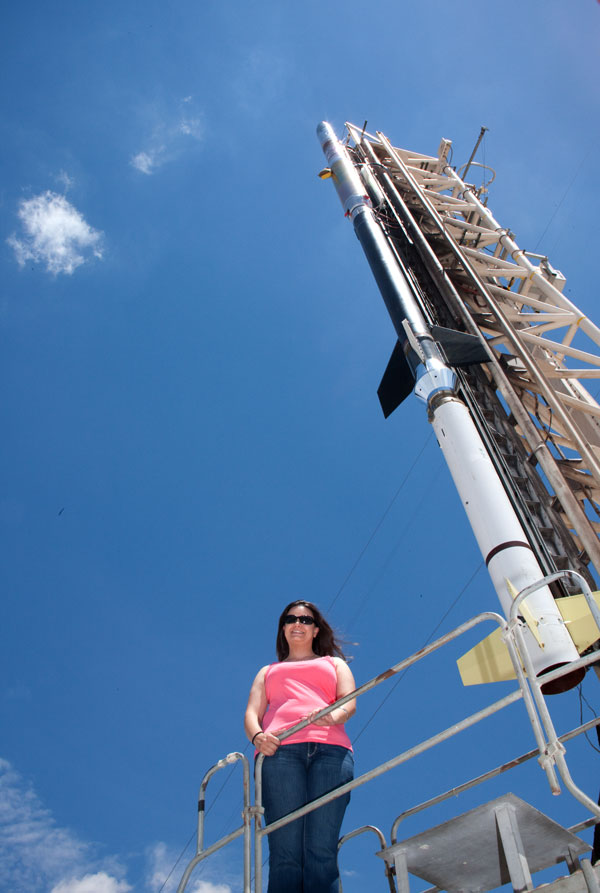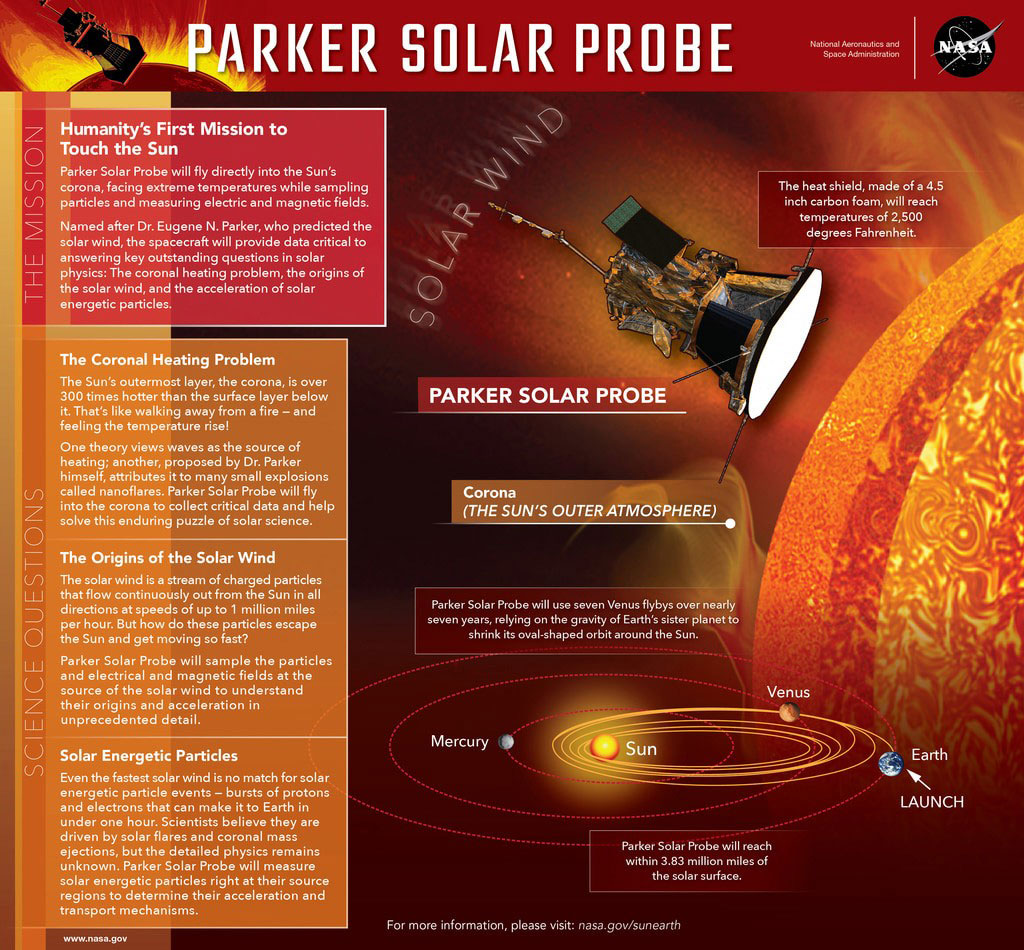


'Coolest hottest mission'
Images courtesy of NASA November 08, 2019
Nov. 13: Vernon Lecture to discuss Parker Solar Probe
Solar physicist Kelly Korreck will be at the University of Delaware on Wednesday, Nov. 13, to discuss what she says is NASA’s “coolest hottest mission”—the Parker Solar Probe that will touch the sun’s atmosphere.
Korreck, of the Harvard-Smithsonian Center for Astrophysics, will deliver the fall 2019 Harcourt “Ace” Vernon Memorial Lecture at 7:30 p.m. in Clayton Hall. The lecture is free and open to the public with advance registration at this site.

The Parker Solar Probe launched in August 2018, after 60 years of planning, and earlier this fall completed its third orbit of the sun, passing about 15 million miles from its surface. As the mission continues through 2025, NASA plans for the spacecraft to complete several more orbits and eventually skim by the sun at less than 4 million miles from the surface.
Korreck’s lecture, “Touching the Sun’s Atmosphere: A Tale of an Extreme Spacecraft and Solar Storms,” will describe the probe itself and the scientific questions the mission hopes to answer.
The probe is extreme in many ways, Korreck says: It is the fastest human-made object, is traveling closer to the sun than any other and has the hottest operating temperatures.
It aims to solve the mysteries of our closest star, including why the solar wind blows and why the sun’s atmosphere—known as the corona—is thousands of times hotter than the surface beneath it.
As the head of science operations for the Solar Wind Electrons Alphas and Protons (SWEAP) investigation for the probe, Korreck will also talk about the “bravest” instrument on board the spacecraft. That instrument, the Solar Probe Cup, will peek around the probe’s protective sun shade to look directly at the sun and gather data.
At UD, William Matthaeus, Unidel Professor of Physics and Astronomy, was involved in NASA’s preparations for the Parker Solar Probe. As a space plasma physicist, he was part of the Science and Technology Definition Team that informed the plans for the mission.
To read more about Matthaeus and the probe, see this previous UDaily article.
About the Vernon Lecture
The Vernon Lecture is named in honor of the late Harcourt ``Ace'' Vernon, one of the founders of the Mount Cuba Astronomical Observatory in Greenville, Delaware, which was established in the 1960s by three DuPont Co. engineers who were interested in astronomy, tracking satellites and the new field of computers.
Because Vernon was particularly interested in stimulating education and interest in science for people of all ages, the lecture is designed to attract the interest of the general public, especially young people.
The lecture, held twice a year, is sponsored by the Mount Cuba Observatory, in conjunction with the Delaware Asteroseismic Research Center, the Mount Cuba Foundation and UD.
About the Parker Space Probe

Contact Us
Have a UDaily story idea?
Contact us at ocm@udel.edu
Members of the press
Contact us at mediarelations@udel.edu or visit the Media Relations website

